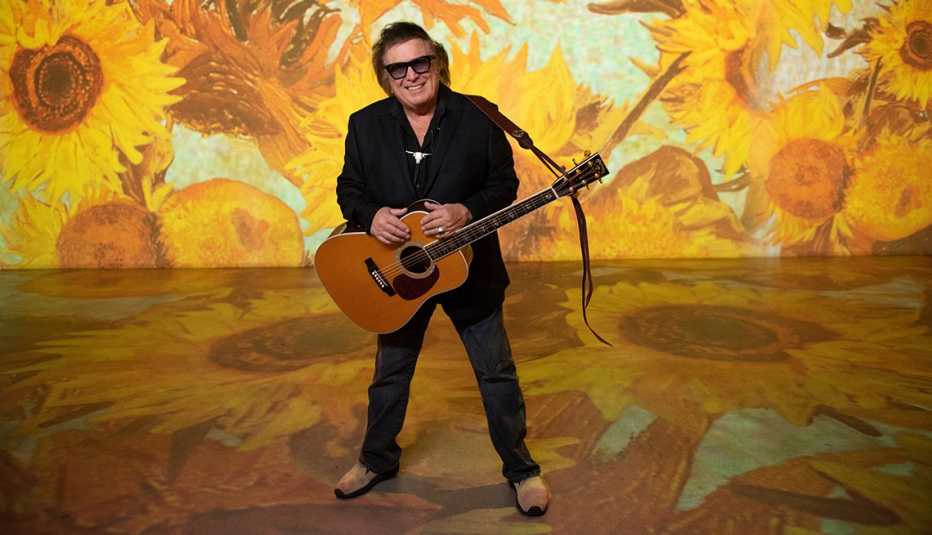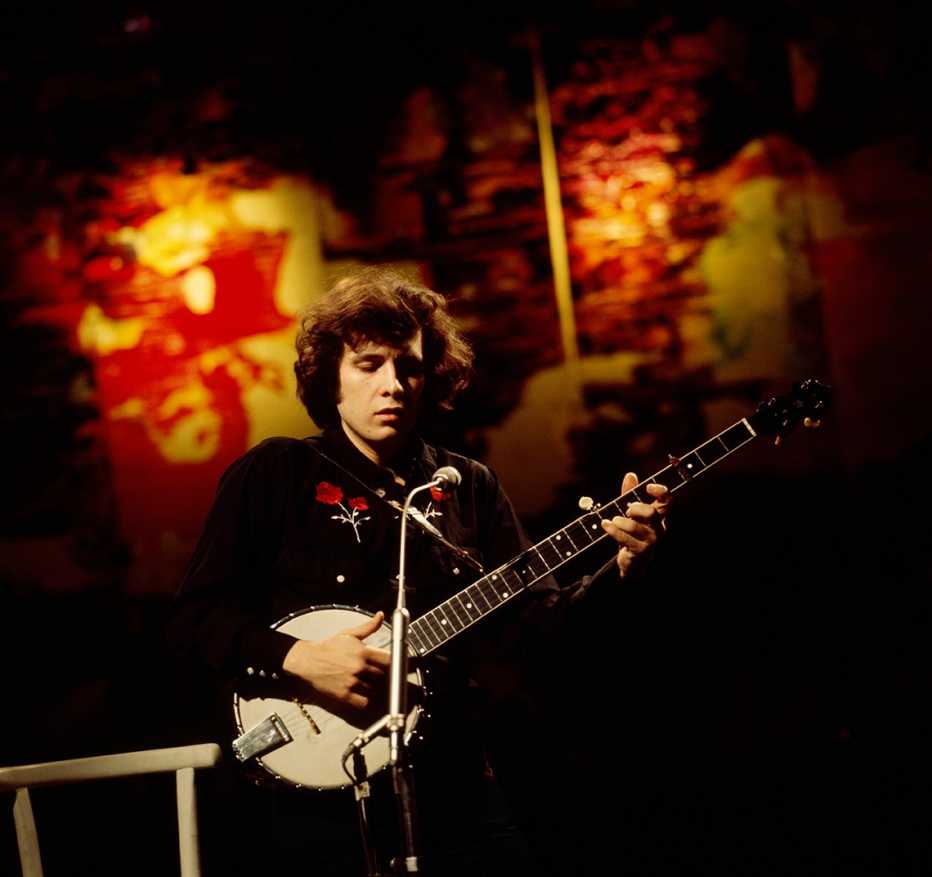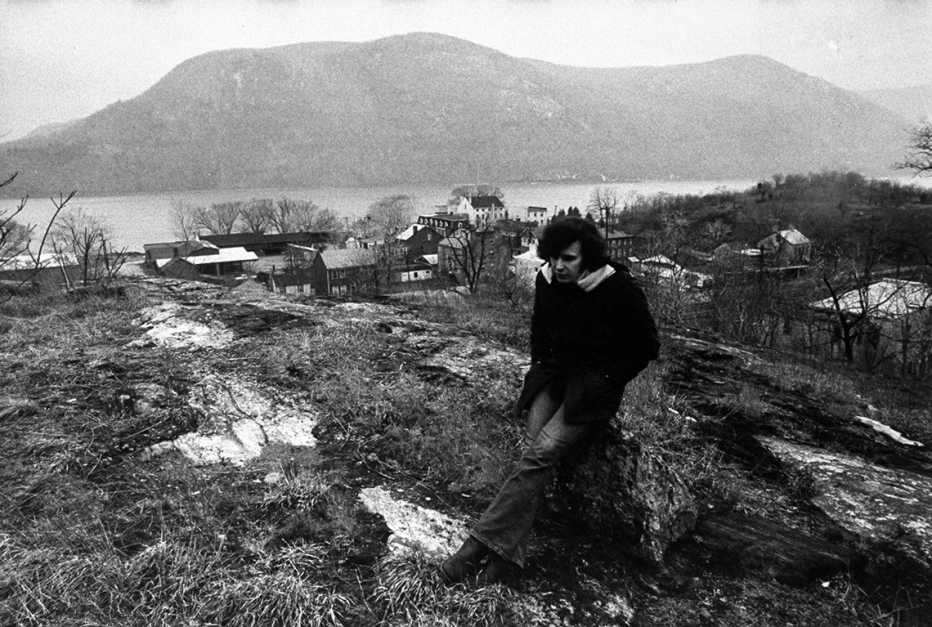After making your mark in folk music, why did you distance yourself from that scene?
There were a lot of America haters, and that’s where I drew the line. I took everything I learned from folk with me. I still adore Pete Seeger. But I wanted to go off and be in my own zone. I didn’t know if I could write songs. I didn’t know how to read music. I knew I could sing, and I was a pretty good guitar player.
How did the lyrics for ‘American Pie’ take shape?
The lyrics started to emerge because of the idea I had about marching forward and building. In Woody Guthrie’s song, “Roll On Columbia” [a celebration of Washington’s Grand Coulee Dam, whose “power is turning our darkness to dawn”], a story builds and the song progresses with each verse. That’s how I approached it. The story holds the audience’s attention.
Analysis of the lyrics was immediate and obsessive. Why did you refuse to provide explanations?
It’s not a board game. It dumbs down the song, and it’s not a dumb song. In the new movie, I go over how it was written and what I was thinking. For example, Elvis is the king, right? But I specifically say the king has a thorny crown, and only Jesus Christ had a thorny crown. But that doesn’t mean you can’t think it’s Elvis. Something can be three things at once. I do mention James Dean by name. If I had wanted to mention Elvis or Bob Dylan by name, I would have.
Don McLean sitting on a rock overlooking the Hudson River near his home in New York's Hudson Valley in 1972.
John Olson/Getty Images
‘American Pie’ plainly mentions Buddy Holly’s death and your years as a paperboy.
That was the only job I ever had. Being a paperboy made me sure I never wanted to work for anyone in my life. I am unemployable. I work for no man. I work for me. I have done what I wanted to do my entire life.
Do you agree with the consensus that the song points to an end of innocence in America?
The Depression and World War II ended innocence pretty good. We always had apocalyptic events and there was always a sense of trouble. The institutions began failing in the ’60s because people didn’t believe in them anymore. My little theory is we were brought up on rock ’n’ roll and God and country and Western movies and morality plays about right and wrong. Everyone knew Hopalong Cassidy and Roy Rogers and their code of conduct. After Kennedy was killed, I read Mark Lane’s Rush to Judgment (disputing the Warren Commission findings). All of us in college realized the government was withholding information about the assassination. And still is.
Have you ever confirmed that the lines about Satan’s spell allude to the Rolling Stones at Altamont?
I never specifically said that. But yes, something was happening with music. We were moving into an area of decadence that was ugly. Violence. Smashing guitars. That woke me up. Promoters seemed happy when someone died and they had a riot.
Fans have speculated that the line about the Father, Son and the Holy Ghost refers to various celebrities. Can you clarify?
I was literally talking about the Holy Trinity. Things had become so chaotic and decadent that even God was corrupted and went to California. Most of the interpretations I’ve heard about my intentions are all wrong.
Given radio’s preference for three-minute pop songs, did you get pressure to slim down ‘American Pie’?
I would never sign a record contract where anyone had any control over me at all. That’s part of the reason I was turned down by a lot of record companies. They all wanted input, and I said no, it has to be my way. I don’t like being told what to do. “American Pie” was cut at 8½ minutes. Without asking me, United Artists cut a short version. Then all these FM stations played the long version off the album.
How did instant worldwide success change your life?
I felt like I wasn’t a person anymore. Pete Seeger was in the car one day. He was very depressed and said, “You’re going to find out what it’s like to be a valuable product.” I discovered I did not like pop culture and I did not like raging fame. It frightened me. It wasn’t normal. When “American Pie” was around, I had screaming girls, people going through my garbage, women coming to the dressing room naked. It was hysteria, and it went on all over the world for five years or so.
Are you satisfied knowing that ‘American Pie’ is what you will be remembered for?
I’m okay with everything. I’m truly delighted that the 50th anniversary is expanding the song into a whole different area with merchandise, lines of clothing, the movie, the book, a tour. I’m going nuts right now. I’m giving everything to my foundation, which aids college students, homeless shelters and food banks in Maine.
How is ‘American Pie’ relevant today?
It continues to do what it’s always done, what I hoped it would do. It helps young people think about rock ’n’ roll and Buddy Holly and American history.
How do you want your future to play out?
I’d like to keep breathing.
Edna Gundersen, a regular AARP music critic, was the longtime pop critic for USA Today.







































































More on Entertainment
Bonnie Raitt Has Something to Talk About
After snagging a Lifetime Achievement Grammy, the rocker shares with AARP what keeps her going stronger than ever
John Mellencamp’s 7 Tips for Living Your Best Life
The musician reflects on his friendship with Bruce Springsteen and turning 70
10 Reasons Why Rod Stewart Is a Forever Rock Star
Watch the legend in a live concert with AARP on March 25!